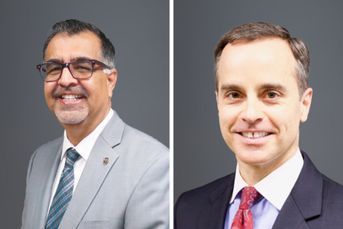Most US adults fear outliving their money more than death

Concerns about inflation, Social Security, and taxes are stoking Americans’ financial anxiety, Allianz Life survey shows.
If there’s one thing adults in the US are more afraid of than dying, it’s outliving their money.
That’s according to the 2024 Annual Retirement Study by Allianz Life, which surveyed 1,000 individuals ages 25 and over across the United States.
The survey findings paint a sobering snapshot, with nearly two-thirds of Americans harboring a greater fear of running out of money than of dying. That widespread concern is primarily driven by the challenges posed by high inflation, the reliability of Social Security, and the impact of high taxes.
The data show nearly two-thirds (63 percent) of respondents are more worried about their financial longevity than mortality, a rise from 57 percent in 2022. That anxiety is especially acute among Generation X, with 71 percent sharing a greater fear of running out of money compared to 64 percent of millennials and 53 percent of baby boomers.
While prices today aren’t rising at the blistering pace they did in 2022, inflation emerged as the foremost concern, with 43 percent of those surveyed citing it as a major factor contributing to their financial worries.
A demographic-level look at the data reveals a spectrum of concern. Inflation anxiety was more pronounced among Black/African American and Asian/Asian American participants, at 52 percent and 51 percent respectively, compared to 41 percent of white and 39 percent of Hispanic respondents. Moreover, baby boomers are more likely than millennials and Gen Xers to point to inflation as a significant worry.
Social Security also features prominently, with 24 percent of participants anxious that it won’t provide sufficient financial support in their retirement years. High taxes also played a role, with 22 percent of respondents citing it as a significant concern related to maintaining a sustainable nest egg.
To combat these financial fears, survey respondents cite a variety of possible coping mechanisms. Focusing on people’s top-three strategies, 41 percent of respondents believe increasing retirement savings is key, while 38 percent suggest cutting current expenses to boost savings. Additionally, 35 percent see investing in products that provide lifetime income as a viable solution to ensuring financial stability in retirement.
The data also show an overwhelming interest in financial advice. Tellingly, nine-tenths of Americans (88 percent) shared a desire to talk with a financial professional about how to maximize investment returns, optimize Social Security benefits, and invest in products that offer lifetime income.
Retirement savings gap persists despite bull market, Ascensus CEO says
Learn more about reprints and licensing for this article.








